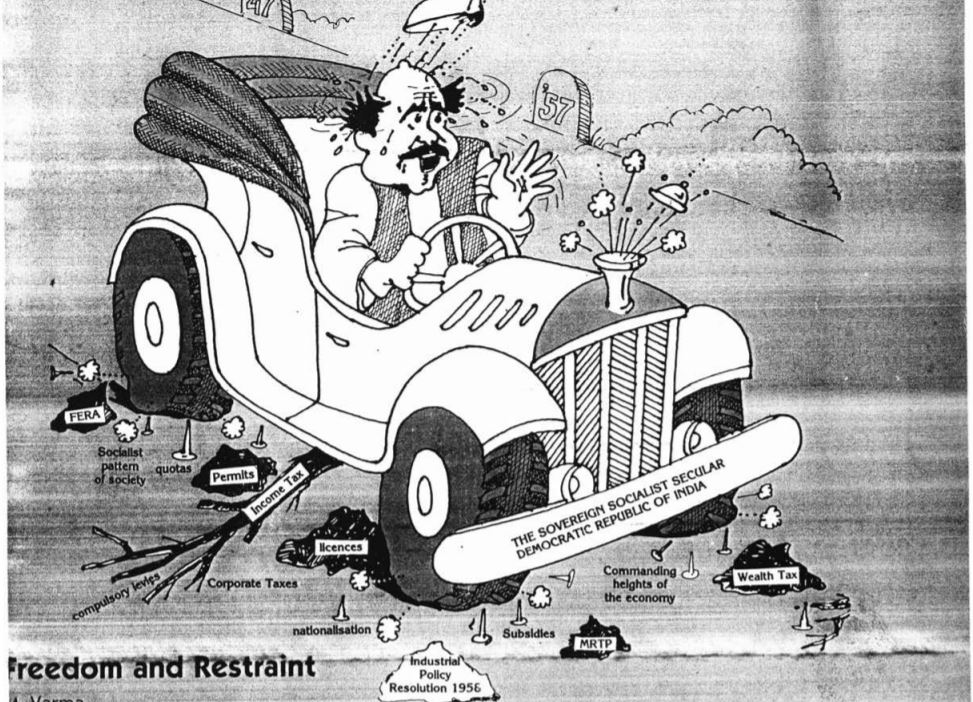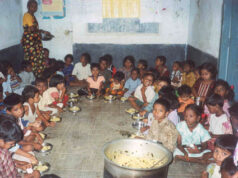As India scrambles to respond to the novel COVID-19 disease, experts have also warned of the severe economic repercussions from the pandemic outbreak. Indian economy, of late, has already been in a bad shape and the virus-induced lockdown further adds to the worry. As the emerging markets brace to face the recessionary pressure, here is a detailed analysis of another monumental economic crisis which entailed a fundamental shift in the Indian political economy.
In the wake of the balance of payment crisis in 1991, The Economist produced a story on economic mismanagement under socialism. The story generated considerable attention in the Indian press and was cited by the Indian liberal opinion-makers. Freedom First, a liberal magazine established by Minoo Masani, published the report in two parts in its own issues for a wider public reach.
Produced below is an excerpt (with an introductory note by the editors) from the first part of the story from the July 1991 issue of the Freed0m First.
The Economist “Survey of India” (May 4, 1991) has attracted considerable attention in the Indian press. Yet, none of our newspapers have, to our knowledge, thought it useful to share with their readers its contents, The story of what went wrong and why India went bankrupt need to be understood. The public debate over the IMF loan has been turned into a question of India’s self-respect and sovereignty. The fact of the matter is we are broke – thanks to forty years of “Nehruvian socialism”. Like an individual who in state of a financial crisis goes to a bank for a loan, our country is compelled to go to the IMF for a loan. We patterned our development on the Soviet model. The Soviets are broke. So are we. They are going around asking for help. So are we.
The Survey helps us understand what went wrong and suggests what needs to be done. We wish we could have reproduced the Survey in its entirety. We cannot afford to. Hence we have done the next best. Given you extract in this issue- and, hopefully, some more in the next.
“…few of India’s troubles are as intractable as Indians, especially, suppose them to be. Of all its miseries, the greatest by far is the country’s economic failure, which is as broad and deep as the poverty that it sustains. If India could put its economy right, many of its other difficulties would immediately seem less overpowering; they would not vanish, by any means, but they would at least begin to seem to be beatable. Undeniably, political stability and human progress in India depend on greater economic success. That is exactly why so many Indians smile with resignation at the hopelessness of their case.
They are wrong. Nowhere else, not even in communist China or the Soviet Union, is the gap between what might have been achieved and what has been achieved as great as in India. The country is rich in the resources that matter most for economic advance- not physical resource which it also has but human resources. Indian are capable of punishingly hard work; remarkably for people so poor, they are thrifty; they are entrepreneurial; they are ambitious and materialistic. When Indians have ignored the Hindu injunction never to cross the “black sea” and travel abroad, they have prospered within a generation. Only at home are so many imprisoned, in their hundreds of millions, in a sink of despair and degradation.
The full text is accessible here. (page 17 onwards)
IndianLiberals.in is an online library of all Indian liberal writings, lectures and other materials in English and other Indian regional languages. The material that has been collected so far contains liberal commentary dating from the early 19th century till the present. The portal helps preserve an often unknown but very rich Indian liberal tradition and explain the relevance of the writings in today’s context.
Read more: SO Musings.
Post Disclaimer
The opinions expressed in this essay are those of the authors. They do not purport to reflect the opinions or views of CCS.






